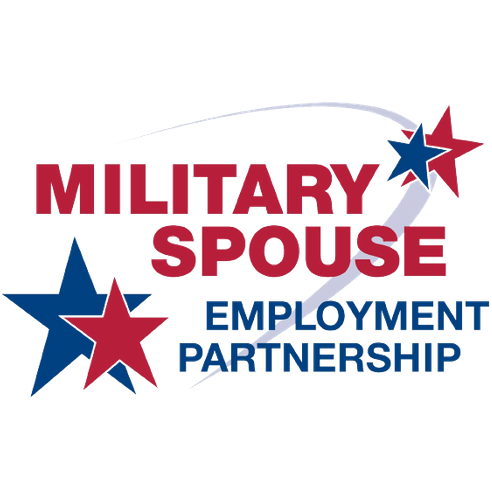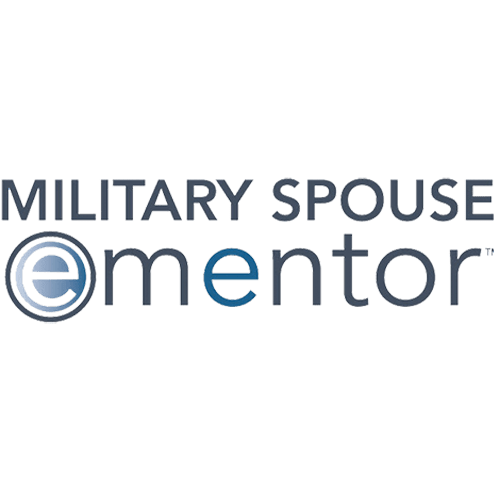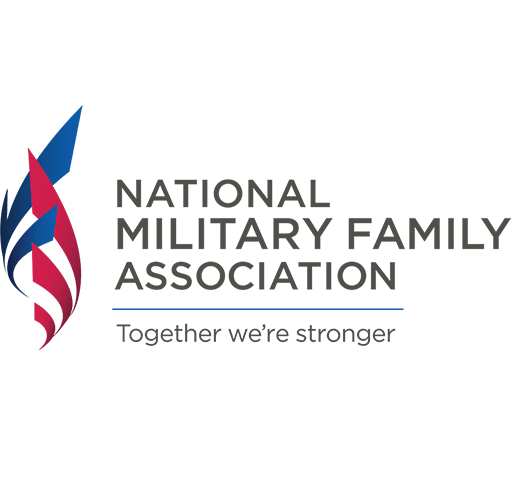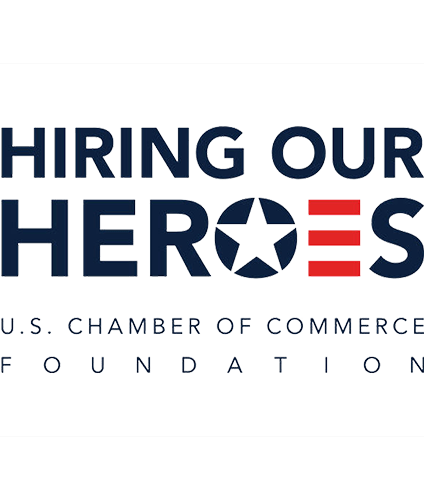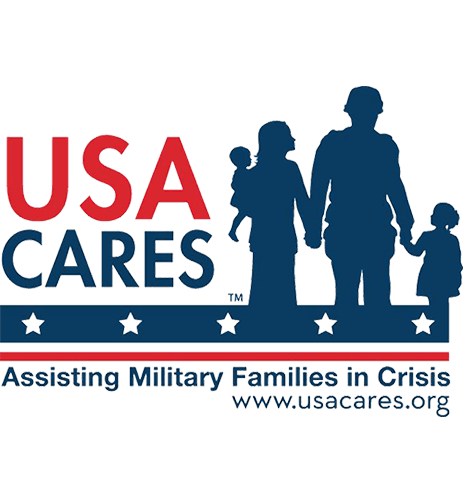PARALEGAL PROFESSIONAL
CERTIFICATION: NALA – CP/CLA
PROGRAM COSTS: Varies
COURSE CONTACT HOURS: 925
PROGRAM DURATION: 6 Months
EXTERNSHIP AVAILABLE: Yes
Texas A&M TAMIU-L-PARA
Download TAMIU Course Outline

The Paralegal Professional
Paralegals play one of the most important roles in the legal industry. Though individual attorneys are ultimately responsible for the legal work they produce and the strategies they devise, many tasks – from legal research and writing, source citing, filing, and others – are delegated to paralegals. As such, it is imperative for successful Paralegals to have a fundamental understanding of the substantive and procedural elements applicable to the specific areas of law where they’ll be working so that they can build on a solid foundation of knowledge starting from the first day. The legal industry relies heavily on paralegals for their experience and general training in these fields. For any new Paralegal looking to enter the workplace or for experienced Paralegals perhaps moving to a different practice, an overview of these common substantive areas is extremely useful to ensure you’re ready to go from the start.
The Paralegal Professional Program
This program offers an in-depth view of the role of paralegals play within the American legal system. Examining the myriad of skills used by paralegals everyday alongside the typical legal working environment, students will explore the common areas of law in which they’ll likely be working, the various ethical considerations that may arise as well as the sources of law they’ll reference every day. Students will be offered an offered an overview of traditional state and federal courts as well as the implications and uses for alternative dispute resolution. Students will also be introduced to various career opportunities available to trained paralegals. This program also provides students with a comprehensive understanding of professional responsibility in the legal field and how these laws apply to paralegals, specifically. In addition to the general legal ethical concepts presented in the course, students will research individual state professional responsibility rules as they apply to the overall field and to the paralegal role. Upon completion of this program, students will be able to recognize an ethical issue, categorize it, and research the possible solutions to the issue.
Certification Opportunities

At the conclusion of this program, students will be able to:
- Summarize the role of the paralegal in the American legal system
- Distinguish among various environments that may use the services of a paralegal
- Summarize legal accounting procedures
- Describe the process of becoming a paralegal professional
- Prepare a resume for a paralegal position
- Examine how the paralegal profession is regulated
- Analyze ethical issues commonly encountered by a paralegal
- Describe the sources of American Law
- Examine the state and federal court systems
- Prepare for a client interview
- Explain the investigation process
- Research legal matters
- Explore styles and formats used in legal writing
- Draft legal documents
- Describe elements in preparing for trial
- Explain the trial process
- Explain the appellate process
- Describe the types of alternative dispute resolution
- Differentiate the authority and functioning of administrative agencies
- Explain criminal law and procedure
- Articulate the legal principles of tort law
- Describe the classifications and elements of contracts
- Outline the basic principles of property law
- Examine the legal principles of family law
- Examine estate planning and probate
- Describe the primary forms of business
- Summarize the role of the paralegal in the American legal system
- Recognize the regulation of the legal profession as a distinct set of laws and rules
- Explore the meaning of the unauthorized practice of law
- Examine issues related to misrepresentation
- Analyze the application of the duty of confidentiality
- Analyze issues related to confidentiality
- Examine issues related to evidentiary privileges
- Examine issues related to conflict of interest and the duty of loyalty
- Examine issues related to advertising
- Analyze issues related to solicitation
- Examine issues related to legal fees
- Examine issues related to paralegal fees
- Examine issues related to client trust accounts
- Examine issues related to competence and negligence
- Examine issues related to zealous representation
- Examine issues related to the duty of integrity and the duty to report
- Examine issues related to health in the legal profession
- Use Microsoft Office
Paralegal Professional Program Detailed Student Objectives:
THE PARALEGAL PROFESSION
- Describe the primary responsibilities of the paralegal in the American legal system
- List professional qualifications for a paralegal
- Give examples of how “soft skills” can increase the effectiveness of a paralegal
- Compare different types of legal work settings
- Give examples of paralegal tasks common to most environments
- Give examples of paralegal tasks related to particular legal specialties
- Describe the importance of proper billing and accounting practices
- Identify the types of accounts a law practice may require
PARALEGAL CAREERS
- Identify the types of paralegal educational programs
- Describe the professional associations available to the paralegal
- Explain the benefits of networking
- Describe career opportunities for paralegals
- Explain how a resume is tailored for a legal environment
- Prepare a resume for a paralegal position
ETHICS OF THE PARALEGAL PROFESSION
- Identify guidelines for avoiding unauthorized practice of law by paralegals
- Compare ethical regulation of attorneys with regulation of paralegals
- Describe efforts to regulate the paralegal profession
- Recognize unethical recording of accounting and client payments
- Determine the appropriate ethical response to various legal scenarios
- Discuss how to protect client confidentiality and avoid conflicts of interest
SOURCES OF AMERICAN LAW AND THE COURT SYSTEMS
- Outline the basic history of the American legal system and its laws
- Describe the sources of law in the United States
- Name the courts included in a typical state court system
- Relate the parts of the federal court system
- Describe the role of the U.S. Supreme Court
- Compare the jurisdiction of federal and state courts
- Describe techniques that support good listening skills in a client interview
- Explain how to prepare for a client interview
- Prepare a checklist for a client interview
- Describe the steps in conducting an investigation
- Identify the parties involved and their roles in the investigation process
- Describe how to select material and expert witnesses
INTERVIEWING AND INVESTIGATING SKILLS
- Describe techniques that support good listening skills in a client interview
- Explain how to prepare for a client interview
- Prepare a checklist for a client interview
- Describe the steps in conducting an investigation
- Identify the parties involved and their roles in the investigation process
- Describe how to select material and expert witnesses
LEGAL RESEARCH AND WRITING
- Develop a research plan for a legal question
- Develop search queries for computer-based research
- Contrast traditional paper-based research with online research methods
- Describe ways to update research to reflect current legal developments
- Research a legal matter
- Compare the writing style used in briefs and memoranda
- Identify the purpose of using citations in legal writing
- Describe the purpose and components of legal briefs and memoranda of law
- Write legal briefs
- Draft internal memoranda of law
- Use citations in legal documents
CIVIL LITIGATION AND ALTERNATIVE DISPUTE RESOLUTION
- List the major pleadings and the parties involved
- Identify the main forms of discovery
- Identify the types of pretrial motions
- Describe the purpose of a settlement conference
- Describe the usual phases of a trial
- Identify the trier of fact for jury and non-jury trials
- Describe the process of appealing a decision
- Describe the possible decisions of an appellate court
- Identify the types of alternative dispute resolution
- Give examples of when to apply each type of alternate dispute resolution
ADMINISTRATIVE LAW
- Identify the role of administrative law in the legal system
- Compare the possible legislative, executive, and judicial powers of agencies
- Describe an agency’s duty to disclose
- Outline the process for judicial review of agency actions
CRIMINAL LAW AND PROCEDURE
- Describe the elements of a crime
- Outline the various types of crimes
- Identify the participants of crime from a fact pattern
- Describe inchoate crimes
- Explain constitutional protections and defenses
- Outline the stages of criminal proceedings
TORTS
- List examples of intentional torts
- Define negligence
- Explain the four elements of negligence
- Define negligence defenses
- Define strict liability
CONTRACTS
- Identify the elements of a contract
- Explain the six contracts subject to the statute of frauds
- Outline the methods available to discharge a contract
- Summarize the various contract remedies available
- Define a Uniform Commercial Code sales contract
PROPERTY
- Define personal and real property
- Describe the different types of ownership interest in real property
- Summarize the methods of transferring ownership of real property
- Explain the landlord-tenant relationship
- Describe the types of intellectual property
FAMILY LAW
- Describe pre-marriage legal concepts
- Identify marriage requirements
- Distinguish between annulment and divorce
- Identify the laws pertaining to property division, spousal support, child custody, and child support
- Identify documents necessary for a divorce
ESTATE PLANNING AND PROBATE
- Describe the different types of wills
- Describe when the intestacy statute applies
- Outline probate procedure
- Distinguish a living will from a health care proxy
- Differentiate between the various types of trusts
- Identify how trusts are terminated
BUSINESS ORGANIZATIONS
- Define agency relationship
- Identify the parties to an agency
- Define sole proprietorship
- Describe the difference between general and limited partnership
- Define Limited Liability Company (LLC)
- Describe the different classifications of corporations
- Explain the roles and duties of shareholders, officers, and directors in corporations
REGULATING THE LEGAL PROFESSION
- Locate the sources of state and federal regulations for lawyers and paralegals
- Explain how the regulation of lawyers differs from that of paralegals
- Explain legal ethics as a matter of defined rules, not of morality
THE UNAUTHORIZED PRACTICE OF LAW
- Locate state statutes, rules, and cases related to the unauthorized practice of law
- Define the “conduit theory” in the context of the unauthorized practice of law
- Distinguish activities that only lawyers may perform from activities that paralegals may perform
- Identify examples of business relationships between a paralegal and a lawyer that exhibit the unauthorized practice of law
MISREPRESENTATION
- Describe “misrepresentation” as it relates to the unauthorized practice of law
- Locate the statutes, rules, and case law defining appropriate designations for paralegals in your state
- Describe acceptable ways for paralegals to represent themselves as non-lawyers
- Define “access to justice”
- Describe how access to justice is intended to protect the public
THE DUTY OF CONFIDENTIALITY
- Define confidentiality in layman’s terms
- Locate state statutes, rules, and cases related to confidentiality
- Describe how long the duty of confidentiality applies
- Recognize issues related to confidentiality
- Describe ways in which a paralegal can unintentionally violate the duty of confidentiality
- Describe situations in which confidential information can legally be divulged
- Analyze fact patterns for possible violations of the duty of confidentiality
- Determine ethically appropriate responses to situations involving issues of confidentiality
EVIDENTIARY PRIVILEGES
- Define attorney-client privilege
- Contrast attorney-client privilege and confidentiality
- Locate the statutes, rules, and case law defining attorney-client privilege in your state
- Explain situations under which attorney-client privilege applies
- Locate the statutes, rules, and case law defining the work product privilege in your state
- Recognize exceptions to attorney-client privilege and work product privilege
THE DUTY OF LOYALTY
- Recognize a “conflict of interest”
- Locate the statutes, rules, and case law defining conflicts of interest in your state
- Determine ethically appropriate responses to situations involving conflict of interest
- Describe personal actions or affiliations of a paralegal that can create conflicts of interest
- Give examples of conflicts that can arise from representing multiple clients
- Develop a personal system for checking possible conflicts of interest
ADVERTISING
- Locate statutes, rules, and case law pertaining to issues of legal advertising
- Locate examples of acceptable advertising for lawyers
- Recognize an issue of access to justice
- Describe circumstances in which it is appropriate for a paralegal to advertise
CLIENT SOLICITATION
- Locate statutes, rules, and case law pertaining to client solicitation
- Differentiate between appropriate and inappropriate client solicitation
- Distinguish between client solicitation and advertising
- Determine ethically appropriate responses to situations involving client solicitation
FAIR FEES
- Differentiate the common types of fee agreements used by lawyers
- Locate statutes, rules, and case law related to contingency fee agreement issues
- Determine the division of a settlement under different contingency fee arrangements
- Distinguish between the American Rule and English Rule of legal fees
PARALEGAL FEES
- Locate statutes, rules, and case law related to the award-ability of paralegal fees in your state
- Explain the importance of maintaining time records
- Investigate pro bono service opportunities for paralegals
CLIENT TRUST ACCOUNTS
- Describe the purpose and operation of a client trust account
- Distinguish between appropriate and inappropriate use of funds in the client trust account
- Describe the requirements for client trust accounting
COMPETENCE AND NEGLIGENCE
- Describe the terms “competence” and “negligence”
- Describe the four elements of legal negligence
- Describe how competence is determined for lawyers
- Describe ways that paralegals can demonstrate their competence
- Recognize acts or omissions that can constitute negligence
THE DUTY OF ZEALOUS REPRESENTATION
- Describe the term “zealous representation” within the context of the duty of loyalty
- Determine whether an act falls within the bounds of the law
- Locate statutes, rules, and case law related to handling evidence in your state
- Recognize suppression of evidence
- Recognize fabrication of evidence
- Recognize spoliation of evidence
THE DUTY OF INTEGRITY AND THE DUTY TO REPORT
- Locate statutes, rules, and case law on a duty to report unethical behavior in the legal profession
- Differentiate between a lawyer’s obligation and a paralegal’s obligation to report unethical behavior
- Explain when and how a paralegal should report unethical conduct
MAINTAINING COMPETENCE
- Describe the incidence of substance abuse in the legal profession
- Determine ethically appropriate responses to an impaired co-worker
- Research state assistance resources for impaired lawyers
- Produce a personal plan for maintaining physical and mental health
- Note: In order to qualify for an externship, students must successfully complete the program, including all quizzes and final
- exams, and be available for a background check and/or a potential drug screen. This program can be completed in 6
- months. However, students will have online access to this program for a 12-month period.
Education and Certifications
- Paralegal Program candidates should have or be pursuing a high school diploma or GED.
- National Certification Available: Students who complete this comprehensive course would be prepared to sit for the
- Microsoft Office Specialist (MOS) Certification Exam.
Technical Requirements
- Windows 7, XP or Vista
- 56K modem or higher
- Soundcard & Speakers
- Firefox, Chrome or Microsoft Internet Explorer
MAC OS USERS
- Mac OS X or higher (in classic mode)
- 56K modem or higher
- Soundcard & Speakers
- Apple Safari
System will support the two latest releases of each browser. When using older versions of a browser, users risk running into problems with the course software.
- Windows Users: Firefox, Chrome, Explorer
- Mac OS Users: Safari, Chrome, Firefox
We recommend setting your screen resolution to 1024 x 768 pixels.
SUGGESTED PLUGINS
- Flash Player
- Real Player
- Adobe Reader
- Java

U.S. Department of Labor
Career Information
The information below provides helpful job information, statistics and projections for this program’s related career tracts.
| Career | Median Salary | Job Openings | Growth Rate | |
|---|---|---|---|---|
| Bookkeeping, Accounting, and Auditing Clerks | $38,390 | 186,600 | -1% to 1% | |
Description |
||||
| Compute, classify, and record numerical data to keep financial records complete. Perform any combination of routine calculating, posting, and verifying duties to obtain primary financial data for use in maintaining accounting records. May also check the accuracy of figures, calculations, and postings pertaining to business transactions recorded by other workers. | ||||
| Job Titles Include | ||||
| Account Clerk, Accounting Assistant, Accounting Associate, Accounting Clerk, Accounting Specialist, Accounting Technician, Accounts Payable Clerk, Accounts Payable Specialist, Accounts Payables Clerk, Accounts Receivable Clerk | ||||
Wages |
Bottom 15% | Median Salary | Top 10% | |
| United States | $23,880 | $38,390 | $59,630 | |
Employment |
current employment 2016 | projected job openings 2016 - 2026 | projected growth 2016 - 2026 | |
| United States | 1,731,000 | 186,600 | -1% to 1% | |
typical tasks |
||||
|
||||
| New Accounts Clerks | $34,990 | 4,000 | -2% or lower | |
Description |
||||
| Interview persons desiring to open accounts in financial institutions. Explain account services available to prospective customers and assist them in preparing applications. | ||||
| Job Titles Include | ||||
| Administrative Assistant, Customer Service Representative, Financial Services Representative, Loan Processor, Member Service Representative, New Accounts Representative, Personal Banker, Relationship Manager, Retail Banker, Retail Service Representative | ||||
Wages |
Bottom 15% | Median Salary | Top 10% | |
| United States | $25,990 | $34,990 | $50,010 | |
Employment |
current employment 2016 | projected job openings 2016 - 2026 | projected growth 2016 - 2026 | |
| United States | 42,000 | 4,000 | -2% or lower | |
typical tasks |
||||
|
||||
STILL CONSIDERING YOUR OPTIONS?
Check out our entire MyCAA-approved program offerings:
 STAY INFORMED
STAY INFORMED
If you’d like to know when we have new courses, new programs, new ideas, new promotions — you know, all new and good stuff — then get on this email list. We keep messages short and sweet, and only send them when there’s something really good happening, like giving away a vacation (yeah, we did that).
